Filter by
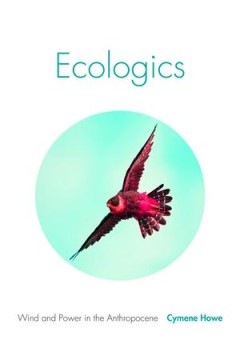
Ecologics Wind and Power in the Anthropocene
Between 2009 and 2013 Cymene Howe and Dominic Boyer conducted fieldwork in Mexico's Isthmus of Tehuantepec to examine the political, social, and ecological dimensions of moving from fossil fuels to wind power. Their work manifested itself as a new ethnographic form: the duograph—a combination of two single-authored books that draw on shared fieldsites, archives, and encounters that can be pro…
- Edition
- -
- ISBN/ISSN
- 9781478003199
- Collation
- -
- Series Title
- -
- Call Number
- -
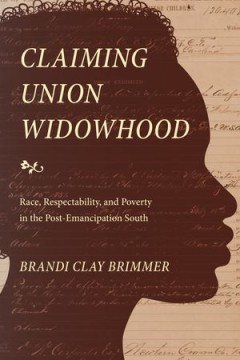
Claiming Union Widowhood Race, Respectability, and Poverty in the Post-Emanc…
In Claiming Union Widowhood, Brandi Clay Brimmer analyzes the US pension system from the perspective of poor black women during and after the Civil War. Reconstructing the grassroots pension network in New Bern, North Carolina, through a broad range of historical sources, she outlines how the mothers, wives, and widows of black Union soldiers struggled to claim pensions in the face of evidentia…
- Edition
- -
- ISBN/ISSN
- 9781478090403
- Collation
- -
- Series Title
- -
- Call Number
- -
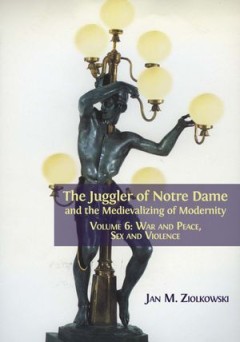
The Juggler of Notre Dame and the Medievalizing of Modernity: Volume 6 War a…
"This ambitious and vivid study in six volumes explores the journey of a single, electrifying story, from its first incarnation in a medieval French poem through its prolific rebirth in the nineteenth and twentieth centuries. The Juggler of Notre Dame tells how an entertainer abandons the world to join a monastery, but is suspected of blasphemy after dancing his devotion before a statue of the …
- Edition
- -
- ISBN/ISSN
- 9781783745418
- Collation
- -
- Series Title
- -
- Call Number
- -
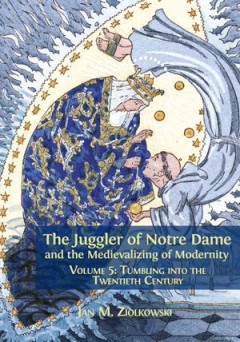
The Juggler of Notre Dame and the Medievalizing of Modernity: Volume 5 Tumbl…
The ANZUS Alliance was a defence arrangement between Australia, New Zealand and the United States that shaped international policy in the aftermath of the Second World War and the early stages of the Cold War. Forged by influential individuals and impacting on global events including the Japanese Peace Treaty, the Korean War and the Suez Crisis, the ANZUS Alliance was a crucial factor in the se…
- Edition
- -
- ISBN/ISSN
- 9781783745364
- Collation
- -
- Series Title
- -
- Call Number
- -
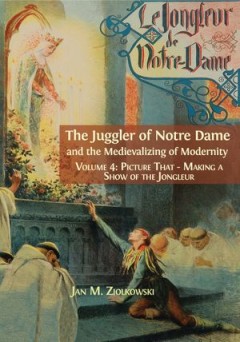
The Juggler of Notre Dame and the Medievalizing of Modernity: Volume 4 Pictu…
Born into a distinguished aristocratic family of the old Habsburg Empire, Hermynia Zur Mühlen spent much of her childhood and early youth travelling in Europe and North Africa with her diplomat father. Never comfortable with the traditional roles women were expected to play, she broke as a young adult both with her family and, after five years on his estate in the old Czarist Russia, with her …
- Edition
- -
- ISBN/ISSN
- 9781783745319
- Collation
- -
- Series Title
- -
- Call Number
- -
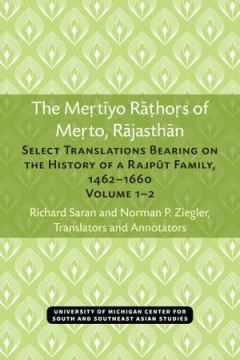
The Mertiyo Rathors of Merto, Rajasthan: Select Translations Bearing on the H…
The Mertiyo Rathors of Merto, Rajasthan is a treasure for scholars of Rajput history. Richard D. Saran and Norman P. Ziegler, whose contributions to Rajput studies are well known to specialists in the field, have given us a work of deep and exacting scholarship. It is the culmination of decades devoted to the study of Middle Marwari chronicles from Rajasthan. The sources translated here provide…
- Edition
- -
- ISBN/ISSN
- 9780472901739
- Collation
- -
- Series Title
- -
- Call Number
- 954 SAR m
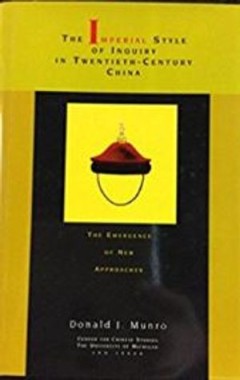
The Imperial Style of Inquiry in Twentieth-Century China: The Emergence of Ne…
How have traditional Chinese ways of thinking affected problem solving in this century? The traditional, imperial style of inquiry is associated with the belief that the universe is a coherent, internally structured unity understandable through the similarly structured human mind. It involves a reliance on antecedent and authoritarian models, coupled with an introspective focus in investigation…
- Edition
- -
- ISBN/ISSN
- 9780472901784
- Collation
- -
- Series Title
- -
- Call Number
- 301.951 MUN i
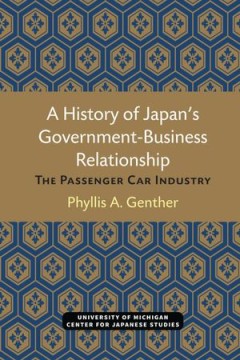
A History of Japan’s Government-Business Relationship: The Passenger Car In…
Despite the economic and political importance of the U.S.-Japan relationship and the extensive attention paid to automotive trade, few American scholars or policy makers are familiar with the history of Japanese government-business relations, either generally or for specific industries such as passenger cars. This book hopefully helps in a small way to fill that gap in our knowledge and, thus, …
- Edition
- -
- ISBN/ISSN
- 9780472902071
- Collation
- -
- Series Title
- -
- Call Number
- 952 GEN h
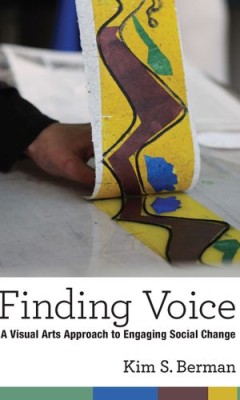
Finding Voice: A Visual Arts Approach to Engaging Social Change
In Finding Voice, Kim Berman demonstrates how she was able to use visual arts training in disenfranchised communities as a tool for political and social transformation in South Africa. Using her own fieldwork as a case study, Berman shows how hands-on work in the arts with learners of all ages and backgrounds can contribute to economic stability by developing new skills, as well as enhancing pu…
- Edition
- -
- ISBN/ISSN
- 9780472900718
- Collation
- -
- Series Title
- -
- Call Number
- 300 BER f
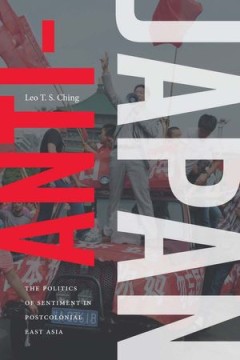
Anti-Japan The Politics of Sentiment in Postcolonial East Asia
Although the Japanese empire rapidly dissolved following the end of World War II, the memories, mourning, and trauma of the nation's imperial exploits continue to haunt Korea, China, and Taiwan. In Anti-Japan Leo T. S. Ching traces the complex dynamics that shape persisting negative attitudes toward Japan throughout East Asia. Drawing on a mix of literature, film, testimonies, and popular cultu…
- Edition
- -
- ISBN/ISSN
- 9781478001881
- Collation
- -
- Series Title
- -
- Call Number
- -
 Computer Science, Information & General Works
Computer Science, Information & General Works  Philosophy & Psychology
Philosophy & Psychology  Religion
Religion  Social Sciences
Social Sciences  Language
Language  Pure Science
Pure Science  Applied Sciences
Applied Sciences  Art & Recreation
Art & Recreation  Literature
Literature  History & Geography
History & Geography